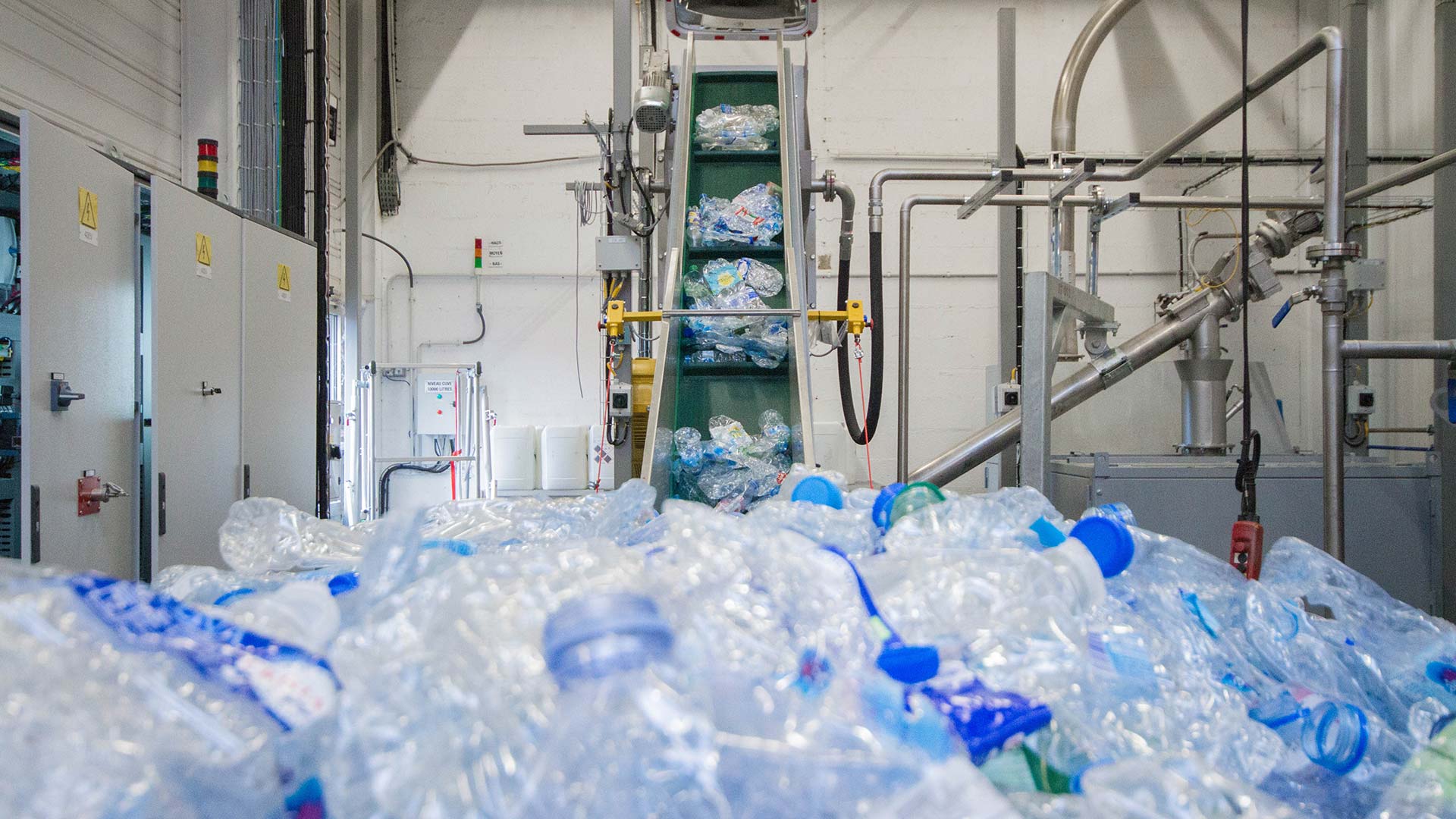Seeking carbon neutrality, the packaging industry is in the middle of a transition period that aims to replace virgin PET with recycled PET. Sidel is engaging with this transition to circular packaging solutions, enabling r-PET to be more widely used. The unique small-scale PET recycling line will allow Sidel to develop advanced knowledge about the recycling of food-contact PET bottles. As Sidel packaging experts assess the impact of additives and primary packaging materials on r-PET resin the facility will become an important reference for raw material producers, recyclers and recycling regulatory organisations. The line will also enable Sidel to further develop its own knowledge, ideas and innovative packaging solutions.
Helping to meet demand for r-PET
Demand for r-PET is increasing and the market is developing as brand owners seek carbon neutral solutions. The amount of recycled PET in packaging globally has increased to 8% compared to 5% in 2018. In Europe, the average is already 15% and is projected to grow to 35% in 2030.1
“There is a big move towards recycled PET, but demand is outstripping supply,” says Naima Boutroy, Sidel’s Global Packaging Expert. “The market still has a lot to learn and we can provide valuable insights. There is a variability in recycled PET resin grades, and standardisation is still in development. We need to address this to create the best possible finished bottles. Our line will test the recyclability of post-consumer PET bottles from different feed stocks, including additives and caps as well as labels, inks and glue. We will be working with traditional Sidel customers such as brand owners, converters and co-packers, as well as other suppliers like raw material producers, recyclers and regulatory organisations, to enable the scaling-up of r-PET capacity. We can also check any innovations comply with bottle-to-bottle recycling.”
Fully-equipped line to study entire process
Sidel’s new line will take raw material from industrial partners such as sorting facilities, recyclers and brand owners. It will then recreate and study all aspects of the process from bales to flakes including pellets ready to be injected into preform, injection and blow moulding.
Sidel will give the packaging industry the opportunity to access a fully equipped pilot line. This line covers every step of the recycling process: from washing, drying and pellet extrusion, to solid-state polymerisation, including dedicated process and laboratory controls at every step.
Making PET a more sustainable choice
PET is proven to be recyclable and is the only food-safe bottle-to-bottle recycled material, but the market has yet to see the production of standardised r-PET resin grade in high quantities; achieving this could facilitate the market conversion from virgin PET to r-PET. Lifecycle analysis shows that PET already has the best carbon footprint among materials currently available; creating a robust recycling loop to achieve full circularity at scale will make PET an even more sustainable choice.
Sidel to become one-stop shop for r-PET
Sidel’s investment in the r-PET pilot line is unparalleled in the packaging industry and will also empower Sidel in shaping the packaging solutions of tomorrow. The line, which has a holistic bottle-to-bottle approach, is just one of a range of services that Sidel is establishing under the name RePETable™ services. The services will draw upon Sidel’s 40+ years of blowing and packaging expertise, to support brand owners and convertors in producing r-PET bottles through line upgrade solutions, packaging optimisation, blowing process qualification, troubleshooting, r-PET processing training.
[1] Ellen MacArthur Foundation Global Commitment 2021 progress report






